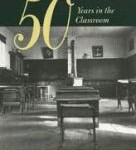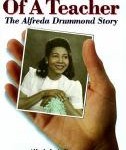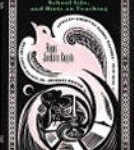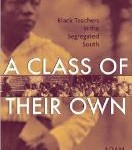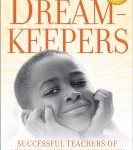Teacher Biographies – African American
Memories of a Georgia Teacher
Martha Mizell Puckett
Athens : University of Georgia Press, c2002
Education Library LA 2317 .P83 2002
Memories of a Georgia Teacher chronicles the personal and professional life of a principled, resourceful, and deeply religious woman whose career began at a time when state support for primary education was all but nonexistent. Martha Mizell started teaching in 1913 in a one-room, one-teacher school near the Okefenokee Swamp in southeast Georgia. At the time she was barely fifteen, and her formal schooling amounted to seven years.
Martha Mizell Puckett’s career paralleled the transformation of small, informal community school systems into consolidated, government supported, bureaucratic structures. Through Puckett’s eyes our own are opened–to hard times, certainly, but also to a time of notable closeness and involvement between schools and their communities.
Hands of a Teacher: The Alfreda Drummond Story. Alfreda Drummond.
Yorktown, VA : Publishing Connections, 1997
Education Library: LA2317.D622 A3 1997
Hands of A Teacher: The Alfreda Drummond Story captures the triumphant spirit of a young girl determined to make her childhood dream of becoming a teacher a reality. Beginning with her early years as sharecropper’s daughter, this heartwarming story traces Alfreda Drummond’s 30+ year struggle through text and more than 60 black and white photographs.
Reminiscences of school life and hints on teaching / Fanny Jackson Coppin ; introduction by Shelley P. Haley.
New York: G.K. Hall & Co. An imprint of Simon & Schuster Mcmillan, 1995.
LD7501.P495 C67 1995
This reprint of the 1913 edition, offers a brief summary of her life, and philosophy of teaching. She was born a slave, in 1837. She worked and furthered her education at the Rhode Island Normal School and graduated from Oberlin College. She went on to become a teacher and principal at the Institute for Colored Youth in Philadelphia, Pennsylvania, from 1866 to 1901.
Marva Collin’s Way
Marva Collins and Civia Tamarkin
Los Angeles : J.P. Tarcher ; Boston : Distributed by Houghton Mifflin, c1982
Education Library LA2317.C2 A35 1982
This book vividly reflects on Mrs. Collins’ love of teaching, her family, and of her students. It describes her stamina and determination in getting kids to believe in themselves and to learn. This is not a how to book, but an inspiring insight of one person and how she did not give up when the odds were against her. Her philosophy is unabashedly Christian; her daily lessons with students show that she uses a multicultural approach which treats the Bible as one Great Book among many. In her classrooms Marva Collins organizes her lessons and her moral principals around a core of Emersonian self-reliance, specifically Getting Out of the Ghetto. While some find her writing style repetitive, she certainly has the knack to inspire.
A class of their own : Black teachers in the segregated South / Adam Fairclough
LC2802.S9 F35 2007
Civil rights historian Adam Fairclough chronicles the odyssey of black teachers in the South from emancipation in 1865 to integration one hundred years later. No book until now has provided us with the full story of what African American teachers tried, achieved, and failed to do in educating the Southern black population over this critical century. Teachers were part of, but also apart from, the larger black population. Often ignored, and occasionally lambasted, by both whites and blacks, teachers were tireless foot soldiers in the long civil rights struggle.
The dreamkeepers: successful teachers of African American children /
Gloria Ladson-Billings.
San Francisco : Jossey-Bass Publishers, c1997
Education Library: LC2717 .L33 2009
The author concentrates on teachers who have been successful at helping African-American children to reach high levels of proficiency by working with the individual strengths of each student and maintaining a rigorous environment in the classroom. Appendices list the specific methodologies these successful educators employ, the historical context of culturally relevant teaching and a list of discussion questions for students and practitioners.
